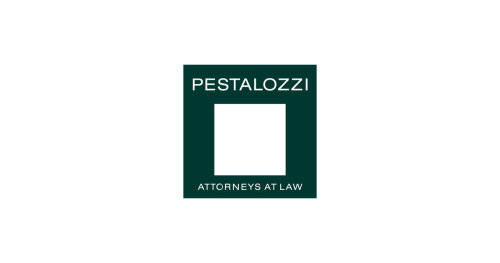Best Nonprofit & Charitable Organizations Lawyers in Zurich
Share your needs with us, get contacted by law firms.
Free. Takes 2 min.
List of the best lawyers in Zurich, Switzerland
About Nonprofit & Charitable Organizations Law in Zurich, Switzerland
In Zurich, Switzerland, nonprofit and charitable organizations play a vital role in society, providing services and support to various causes. The legal framework governing these organizations is designed to ensure they operate transparently, ethically, and efficiently. Key legal forms include associations, foundations, and cooperatives, each with specific regulatory requirements. Associations are the most common form, requiring at least two people to establish, while foundations require an initial capital endowment. This sector is essential for community development and addresses social, cultural, educational, and environmental needs.
Why You May Need a Lawyer
There are several instances where seeking legal assistance for nonprofit and charitable organizations might be beneficial:
- Establishing an organization: Understanding the legal requirements for forming an association, foundation, or cooperative.
- Tax exemptions: Navigating tax laws to achieve tax-exempt status or understanding tax responsibilities.
- Compliance issues: Ensuring the organization complies with statutory obligations and best governance practices.
- Employment law: Handling employee contracts and volunteer agreements legally and fairly.
- Contract negotiations: Drafting and reviewing contracts with donors, partners, or vendors.
- Regulatory changes: Staying informed about changes in laws affecting operations, funding, and governance.
- Dispute resolution: Managing conflicts internally or with external parties, including litigation if necessary.
Local Laws Overview
Nonprofit and charitable organizations in Zurich must adhere to Swiss civil law, which governs corporate and commercial matters. Associations are codified in the Swiss Civil Code, which provides flexibility and minimal formalities for formation but mandates keeping records of membership, meetings, and financials. Foundations, governed under the Swiss Civil Code, are closely monitored by supervisory authorities to ensure they pursue public, non-profit goals. These laws aim to maintain transparency, accountability, and public trust in nonprofit activities.
Frequently Asked Questions
What is the most common legal structure for nonprofits in Zurich?
The most common structure is an association, which is simple to establish and offers flexibility in operations and governance.
Do nonprofits in Zurich pay taxes?
Nonprofits can apply for tax exemption if they exclusively pursue public and charitable purposes. However, compliance with statutory obligations is required to maintain this status.
How can we establish a nonprofit organization in Zurich?
At least two individuals can establish an association by adopting bylaws and appointing a board. Registration with the local commercial register is optional but recommended for legal identity.
Are there specific reporting requirements for nonprofits?
Nonprofits must maintain accurate records of their activities, finances, and meetings to ensure transparency and accountability, with some required to submit annual reports.
What are the legal obligations for nonprofit board members?
Board members have a fiduciary duty to act in the organization's best interests, manage assets responsibly, and comply with regulatory requirements.
Can a foreigner establish a nonprofit in Zurich?
Yes, foreigners can establish nonprofit organizations in Zurich, provided they comply with local legal requirements for formation and operation.
How can a nonprofit raise funds legally in Zurich?
Nonprofits can engage in fundraising through membership fees, donations, grants, and sponsorships, provided they abide by relevant fundraising laws and ethical guidelines.
Is it necessary to hire employees for a nonprofit?\
Not necessarily. Many nonprofits operate with volunteers, but if hiring employees, they must comply with Swiss labor laws, including contracts and worker rights.
What happens if a nonprofit dissolves?
Upon dissolution, remaining assets must be allocated to a similar tax-exempt purpose, as per bylaws and Swiss law requirements for nonprofits.
Can a nonprofit engage in political activities?
While Swiss law permits some advocacy, nonprofits must ensure that such activities do not overshadow their primary charitable purposes to maintain tax-exempt status.
Additional Resources
Individuals can refer to the following resources for more information and assistance:
- Federal Department of Justice and Police: Provides legal information and guidance on civil foundations and associations.
- Zewo: A Swiss certification body ensuring nonprofit organizations operate responsibly and transparently.
- Zurich Cantonal Tax Office: Offers advice on tax exemption applications and obligations.
- Swiss Foundations: Offers a comprehensive database and support network for Swiss foundations.
Next Steps
If you oversee a nonprofit or charitable organization in Zurich and require legal assistance, consider taking the following steps:
- Identify your needs: Define the specific legal areas where you need guidance, whether it's formation, compliance, taxes, or disputes.
- Research potential lawyers: Look for legal professionals specializing in nonprofit and charitable law with a good reputation and track record.
- Prepare necessary documentation: Gather relevant documents such as bylaws, meeting minutes, financial records, and correspondence for informed legal advice.
- Schedule consultations: Meet with a few lawyers to understand their approach, fees, and how they can help your organization.
- Make an informed choice: Select a lawyer whose expertise and services align with your organization's needs and objectives.
With the right legal counsel, your organization can navigate the complexities of nonprofit law and focus on achieving its charitable goals effectively.
Lawzana helps you find the best lawyers and law firms in Zurich through a curated and pre-screened list of qualified legal professionals. Our platform offers rankings and detailed profiles of attorneys and law firms, allowing you to compare based on practice areas, including Nonprofit & Charitable Organizations, experience, and client feedback.
Each profile includes a description of the firm's areas of practice, client reviews, team members and partners, year of establishment, spoken languages, office locations, contact information, social media presence, and any published articles or resources. Most firms on our platform speak English and are experienced in both local and international legal matters.
Get a quote from top-rated law firms in Zurich, Switzerland — quickly, securely, and without unnecessary hassle.
Disclaimer:
The information provided on this page is for general informational purposes only and does not constitute legal advice. While we strive to ensure the accuracy and relevance of the content, legal information may change over time, and interpretations of the law can vary. You should always consult with a qualified legal professional for advice specific to your situation.
We disclaim all liability for actions taken or not taken based on the content of this page. If you believe any information is incorrect or outdated, please contact us, and we will review and update it where appropriate.















